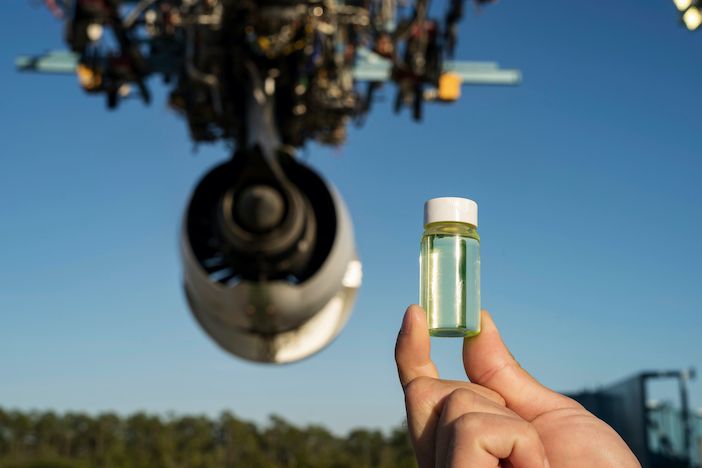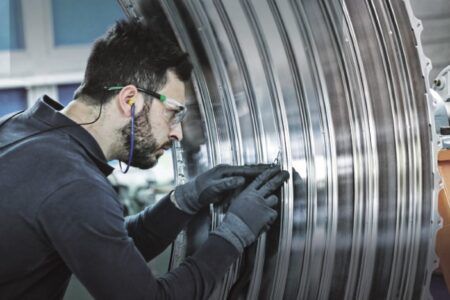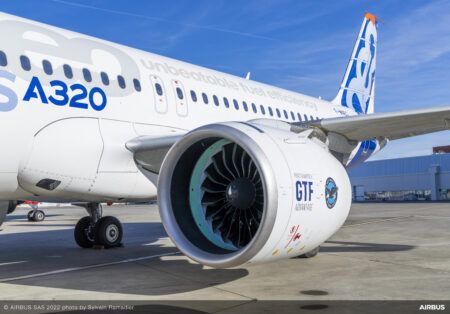Pratt & Whitney has successfully tested the GTF Advantage engine with 100% sustainable aviation fuel.
The testing took place at the company’s facility in West Palm Beach, Florida, USA starting on March 1.
The GTF Advantage is being prepared for entry into service in 2024 and validating the engine’s performance on 100% sustainable aviation fuel (SAF) in thrust transients, starting and operability are key step towards this.
Graham Webb, chief sustainability officer at Pratt & Whitney said, “We’re thrilled to have successfully tested the GTF Advantage engine on unblended SAF.
“The GTF Advantage represents the greenest, lowest emission engine in the industry, and it is now demonstrating full operational capability for the greenest aviation fuels of today and tomorrow. Operation on 100% SAF is a key component of the industry’s commitment to net zero carbon emissions by 2050 and the completion of these tests get us closer to that goal.”
Pratt & Whitney has been involved in testing SAFs for almost two decades and helped to establish the fuel’s technical standards for operation at blends of up to 50% with standard kerosene. The company is working towards validating its engines to operate with 100% SAF in partnership with the Commercial Aviation Alternative Fuels Initiative and ASTM International.
Sean Bradshaw, technical fellow for sustainable propulsion at Pratt & Whitney said, “Sustainable aviation fuels are central to the challenge of decarbonizing aviation and reaching our industry’s net zero goal. Validating and certifying the GTF Advantage engine on 100 percent SAF will ensure this engine’s ability to deliver sustainable propulsion to our customers over many decades of service.
“We remain dedicated to working with the industry on creating a viable path for SAF development, production and distribution.”
Pratt & Whitney used 100% Hydroprocessed Esters and Fatty Acids Synthetic Paraffinic Kerosine (HEFA-SPK) fuel acquired from World Energy for the test. HEFA-SPK is a specific type of hydrotreated vegetable oil fuel used in aviation and is considered a leading alternative replacement for conventional jet fuel by CAAFI due to the sustainability of its feedstock.





